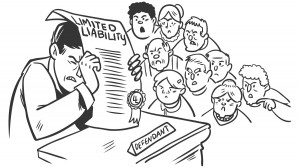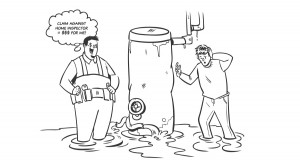Limitation of Liability is NOT a Home Inspector’s Best Friend
 Home inspectors love Limitation of Liability clauses because, in most U.S. jurisdictions, they put a cap on a home inspector’s potential liability for negligence. However, these same clauses also stifle a home inspector’s earning potential.
Home inspectors love Limitation of Liability clauses because, in most U.S. jurisdictions, they put a cap on a home inspector’s potential liability for negligence. However, these same clauses also stifle a home inspector’s earning potential.
How?
I describe in the video below how Limitation of Liability clauses are completely unnecessary and don’t prevent clients and co-defendants from suing home inspectors.
Make sure you click the second button below to subscribe to Joe Ferry’s ClaimsAcademy and get immediate access to my complete home inspector training video library. If you are already a member, click the first button and sign in. (more…)

 Many home inspectors believe that competence and experience guarantee a claim-free existence. They are stunned when they receive their first claim (likely a meritless one) after 20 years on the job.
Many home inspectors believe that competence and experience guarantee a claim-free existence. They are stunned when they receive their first claim (likely a meritless one) after 20 years on the job.